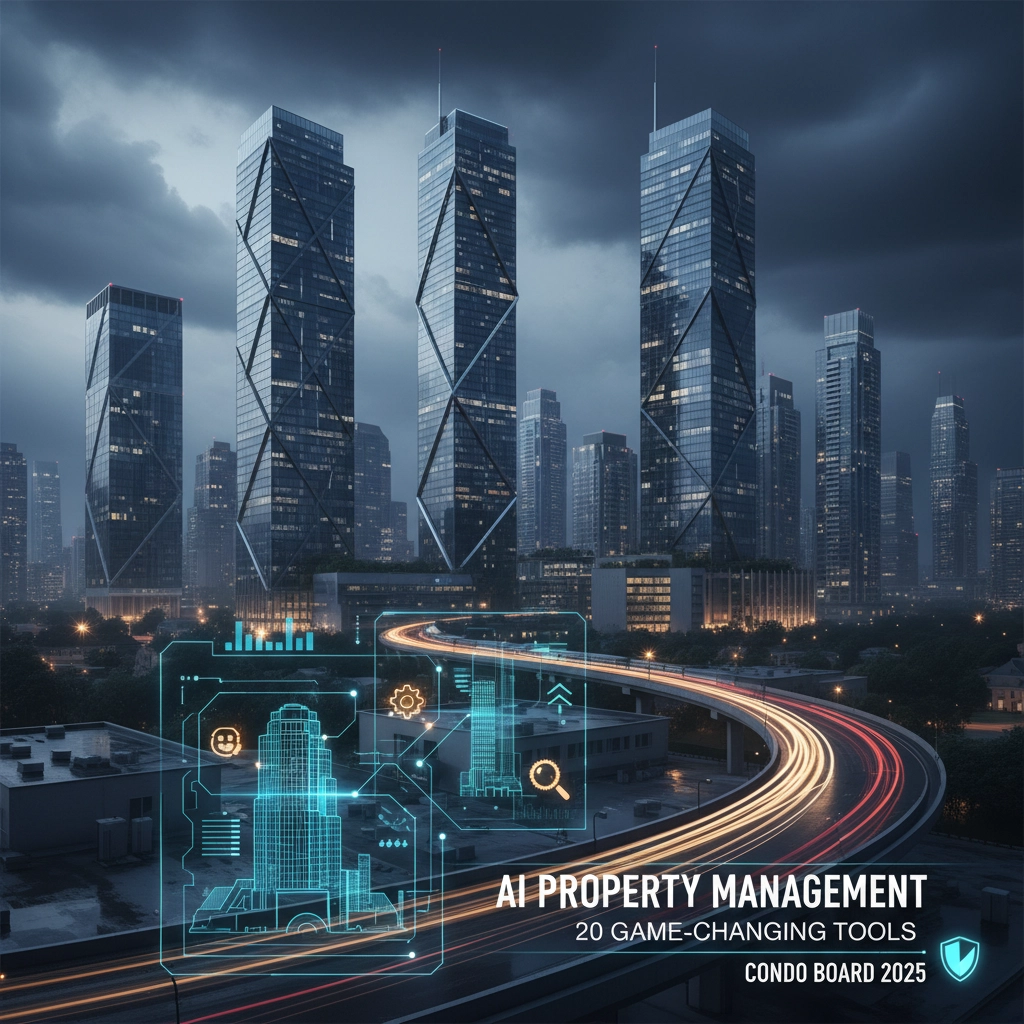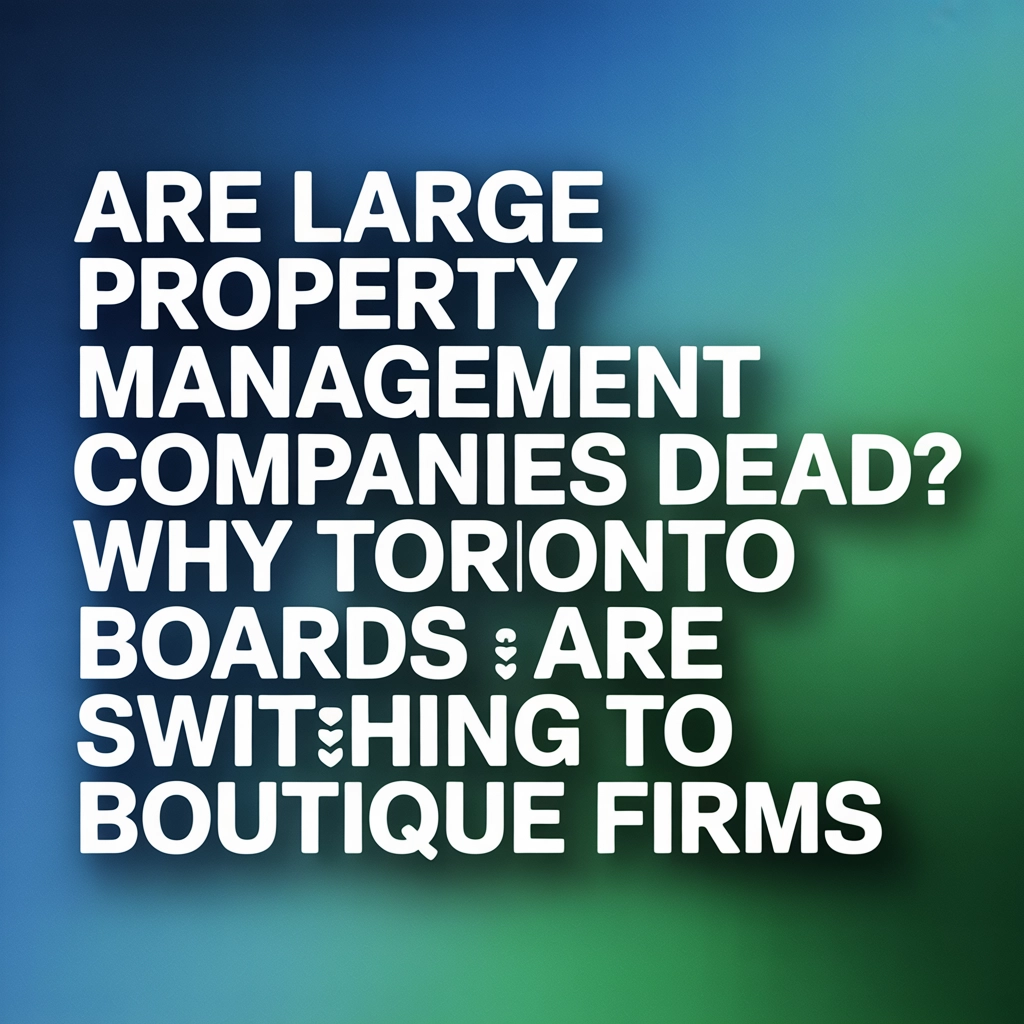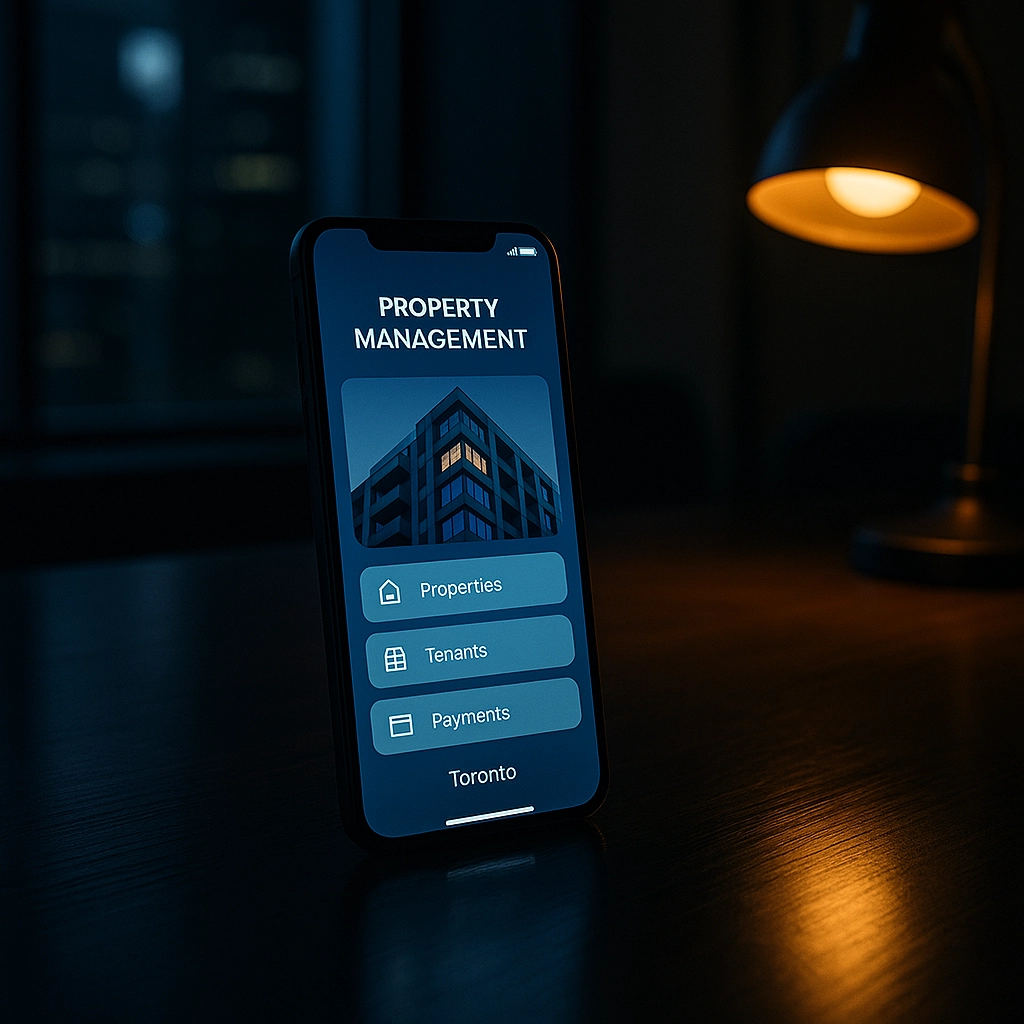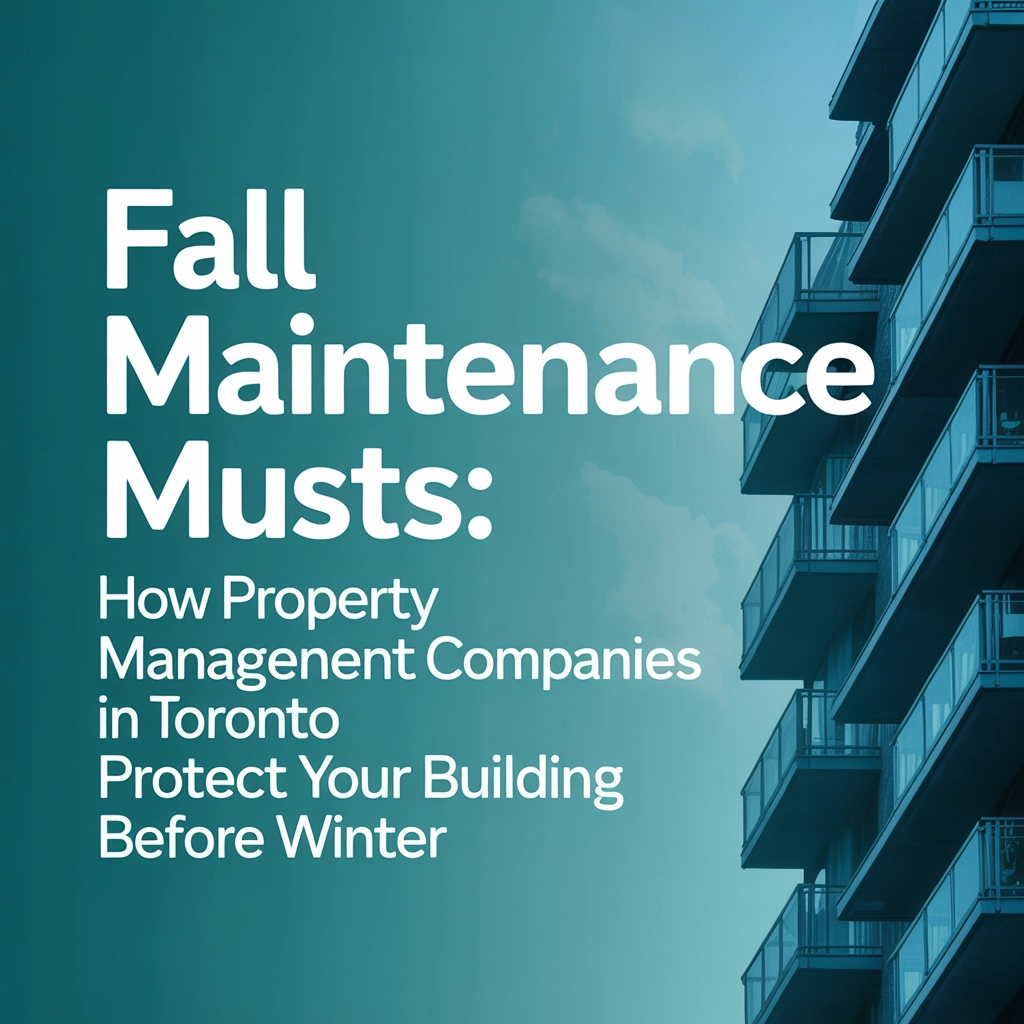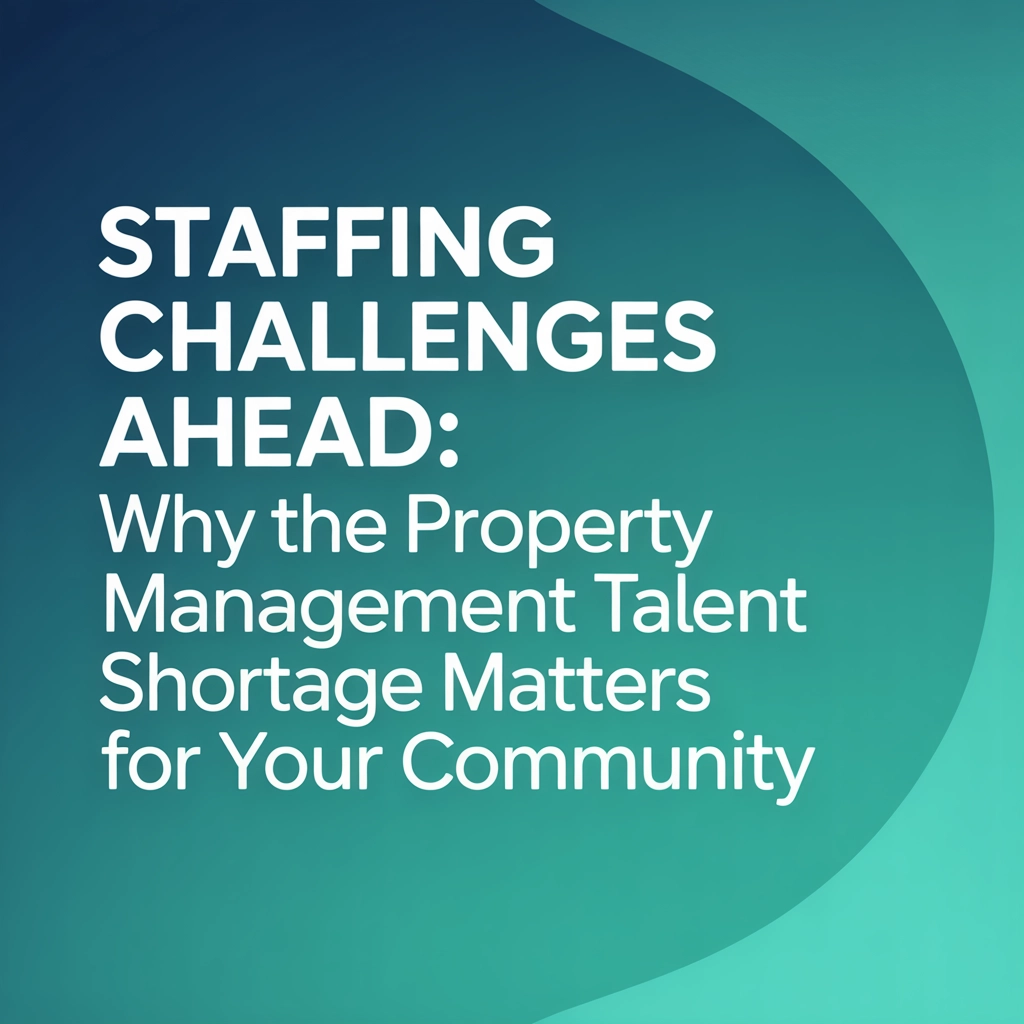With the Bank of Canada navigating a complex economic landscape and interest rates in flux, Toronto condo boards are facing critical decisions about their reserve funds. The recent volatility in rates has caught many condominium corporations off-guard, leading to costly mistakes that could have been easily avoided with proper planning.
If you're on a condo board in Toronto, you've probably noticed how quickly things can change in the financial world. One month you're earning decent returns on your reserve fund investments, and the next, you're scrambling to figure out where to put your money as rates shift. The truth is, many boards are making the same predictable mistakes: and it's costing their communities thousands of dollars.
The Most Common Reserve Fund Blunders Toronto Boards Make
Mistake #1: Staying Stuck in Yesterday's Investment Strategy
Here's what we see all the time: Toronto condo boards get comfortable with a particular investment approach and then refuse to adapt when market conditions change. Maybe your reserve fund was earning 4.5% in high-interest savings accounts or GICs last year, so you figured you could just "set it and forget it."
But here's the reality: when central banks cut rates, those yields drop fast. Money market funds and high-interest savings accounts that were paying out solid returns can see their yields plummet within months. We've watched Toronto boards lose out on tens of thousands in potential earnings simply because they didn't adjust their strategy when the writing was on the wall.

Mistake #2: Ignoring the Timing of Major Capital Projects
This one hits close to home for Toronto condo corporations. You know that elevator modernization project you've been putting off? Or the underground parking garage repairs that keep getting pushed to "next year"? When interest rates are cutting, that's actually prime time to move on these projects.
Lower borrowing costs mean your special assessments won't hit residents as hard, and financing terms become more favorable. Yet we consistently see boards missing these windows of opportunity, only to tackle major repairs when rates climb back up and costs skyrocket.
Mistake #3: Panic-Driven Decision Making
Interest rate volatility makes everyone nervous: we get it. But some of the worst reserve fund decisions happen when boards panic and make knee-jerk reactions. We've seen Toronto boards pull money out of perfectly sound investments during temporary market dips, locking in losses that could have been avoided with a bit more patience and strategic thinking.
The classic example? A downtown Toronto condo board that panicked during a rate announcement and moved their entire reserve fund into ultra-conservative investments earning less than 1%. Six months later, they realized they'd sacrificed significant earning potential for no real benefit.
Mistake #4: Not Leveraging Professional Expertise
Toronto's condo management landscape is complex, especially when it comes to reserve fund planning. The Condominium Act has specific requirements about reserve fund studies and contributions, but many boards try to navigate investment decisions on their own instead of partnering with experienced Toronto property management companies.
This DIY approach often backfires because board members: no matter how well-intentioned: usually aren't financial experts. They miss opportunities, overlook risks, and sometimes make decisions that violate their own corporation's bylaws or provincial regulations.
How to Protect Your Community's Financial Future
Build a Rate-Flexible Investment Framework
Smart Toronto condo boards create investment strategies that can adapt to changing rate environments. This means diversifying beyond just high-interest savings accounts and considering a mix of investment vehicles with different rate sensitivities.
For example, instead of putting 100% of your reserves in savings accounts, consider allocating portions to short-term GICs with staggered maturity dates, money market funds, and even some longer-term investments for funds you won't need immediately. This approach helps smooth out returns regardless of which direction rates move.

Time Your Capital Projects Strategically
When rates are dropping, that's your signal to accelerate necessary capital improvements. Work with your Toronto property management company to identify projects that can benefit from lower financing costs. This might mean moving up that roof replacement from 2027 to 2025, or finally tackling that lobby renovation while special assessment financing is more affordable for your residents.
The key is having a clear capital improvement timeline based on your most recent reserve fund study. Toronto boards that plan ahead can take advantage of favorable borrowing conditions instead of being forced into emergency repairs at the worst possible time.
Establish Clear Investment Guidelines
Your condominium corporation should have written investment policies that outline how reserve funds can be invested during different market conditions. These guidelines should specify risk tolerance, liquidity requirements, and decision-making processes.
For Toronto condo boards, this is especially important because the Condominium Act requires reserve funds to be invested safely and accessibly. Having clear policies prevents emotional decision-making and ensures compliance with provincial requirements.
Partner with Experienced Toronto Property Management Companies
Professional property management brings expertise that most volunteer board members simply don't have. Experienced Toronto property management companies have seen multiple interest rate cycles and can provide valuable guidance on reserve fund planning strategies that work in the local market.
They also have relationships with financial advisors, contractors, and other professionals who can help optimize your reserve fund performance and project timing. This professional network becomes invaluable when navigating complex financial decisions.

Toronto-Specific Considerations for Reserve Fund Planning
Understanding Provincial Regulations
Ontario's Condominium Act has specific requirements for reserve fund investments that differ from other provinces. Toronto condo boards need to ensure their investment strategies comply with these regulations while still maximizing returns.
The Act requires reserve funds to be invested in relatively safe, liquid investments. This means high-risk strategies are off the table, but there's still room to optimize within the allowable parameters.
Local Market Dynamics
Toronto's real estate market has unique characteristics that affect reserve fund planning. High property values mean larger reserve funds, which creates more significant opportunities (and risks) when making investment decisions.
Additionally, Toronto's older building stock often requires more frequent major repairs, making reserve fund planning even more critical. Boards need strategies that balance current returns with future accessibility for large capital projects.
Professional Resources Available
Toronto has a robust network of property management professionals, financial advisors, and other experts who specialize in condominium corporations. Taking advantage of these local resources can significantly improve your reserve fund outcomes.
Look for professionals who understand both the financial and regulatory aspects of Toronto condo management. The best advisors will help you create strategies that comply with provincial requirements while maximizing your community's financial position.
Taking Action: Your Next Steps
The good news is that avoiding these common reserve fund mistakes isn't complicated: it just requires proactive planning and professional guidance. Start by reviewing your current investment strategy and asking whether it's still appropriate for today's rate environment.
If you haven't updated your reserve fund approach in the past year, or if you're not sure whether your current strategy makes sense, it's time to get professional help. Toronto property management companies that specialize in condominium management can provide the expertise your board needs to navigate these challenging financial waters.
Don't let your community become another cautionary tale about reserve fund mistakes. With proper planning and professional guidance, your Toronto condo corporation can protect its financial future regardless of what happens with interest rates.
The key is acting now, before the next rate change catches you off-guard. Your residents are counting on your board to make smart financial decisions that protect their investment and keep their community thriving for years to come.


